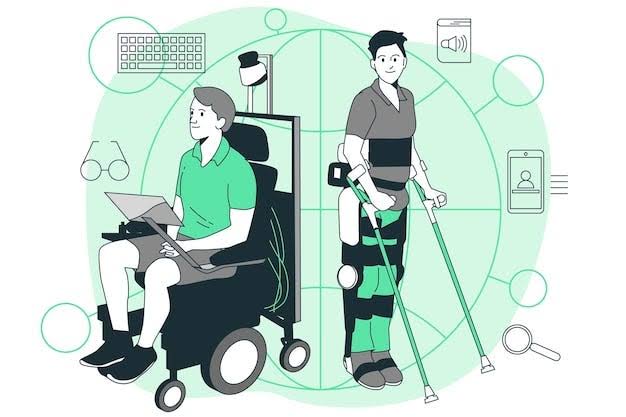Quantum computing is becoming one of the most important technologies of the 21st century. Unlike regular computers that use bits of 0 or 1, quantum computers use qubits, which can be both 0 and 1 at the same time thanks to superposition and entanglement.
This lets them solve complex problems much faster than traditional computers. By 2025, quantum computing is moving from testing to real use, affecting fields like healthcare, finance, cybersecurity, and artificial intelligence. Knowing its future impact helps businesses, governments, and people get ready for new tech changes.
The Current State of Quantum Computing
While still in its developmental stage, quantum computing has made impressive progress. Tech giants, startups, and research institutions worldwide are racing to develop quantum hardware and software that can tackle problems beyond the reach of classical machines. Companies like IBM, Google, Intel, and Rigetti, along with global initiatives in China, Europe, and Canada, have made breakthroughs in building more stable qubits and reducing quantum errors.
Current developments focus on:
- Quantum processors: Increasing the number of qubits and improving their stability
- Error correction: Minimizing noise and computational errors to achieve reliable results
- Quantum algorithms: Designing applications that can leverage quantum advantages in real-world scenarios
- Cloud-based quantum access: Allowing researchers and companies to experiment with quantum computing without owning physical hardware
Though we are still in the Noisy Intermediate-Scale Quantum (NISQ) era, where systems are not fully fault-tolerant, the foundation is being laid for practical and scalable quantum computing.
Key Applications of Quantum Computing
1. Cryptography and Cybersecurity
Quantum computing poses both a challenge and a solution for cybersecurity. Quantum algorithms like Shor’s algorithm could break current encryption methods, including RSA and ECC, by factoring large numbers exponentially faster than classical computers. At the same time, it will drive the adoption of post-quantum cryptography, which involves developing encryption resistant to quantum attacks.
2. Drug Discovery and Healthcare
Quantum computing can transform pharmaceutical research by simulating molecular structures and chemical reactions with unprecedented precision. This enables faster drug discovery, personalized medicine, and better understanding of complex diseases like cancer or Alzheimer’s. Pharmaceutical companies are already using quantum simulations to reduce the cost and time of clinical trials.
3. Artificial Intelligence and Machine Learning
Quantum computers can process vast datasets and optimize AI models far more efficiently than classical systems. This could accelerate breakthroughs in deep learning, natural language processing, and pattern recognition. Quantum-enhanced AI could lead to faster training times and more accurate predictive models in industries like finance, logistics, and autonomous systems.
4. Financial Modeling and Risk Management
The finance sector relies heavily on analyzing market trends, optimizing portfolios, and managing risks. Quantum computing excels at solving complex optimization problems and running simulations that classical systems cannot handle efficiently. This will allow banks, hedge funds, and insurance companies to make faster and more precise financial decisions.
5. Logistics and Supply Chain Optimization
Quantum computing can significantly improve global supply chains by optimizing routes, inventory, and resource allocation. Large-scale logistics problems, such as managing delivery networks for multinational companies or coordinating urban traffic, can be solved faster and with better accuracy using quantum algorithms.
6. Climate Modeling and Sustainability
Climate change presents highly complex modeling challenges involving massive amounts of environmental data. Quantum computing has the potential to simulate atmospheric, oceanic, and geological systems more precisely, aiding in climate predictions, renewable energy optimization, and environmental protection initiatives.
7. Advanced Material Science
Quantum simulations can help scientists discover new materials for electronics, construction, and energy storage. For example, quantum computers could accelerate the development of high-efficiency batteries, superconductors, and carbon capture materials critical to the green energy transition.
The Challenges Ahead
While the future is promising, several challenges must be addressed before quantum computing achieves widespread adoption:
- Error correction and stability: Qubits are extremely sensitive to environmental noise, making error-free computation difficult.
- Scalability: Building large-scale quantum computers with millions of qubits is still years away.
- High costs and infrastructure demands: Quantum systems require extremely low temperatures and advanced hardware to operate.
- Talent shortage: There is a growing need for specialists in quantum engineering, algorithms, and cryptography.
- Cybersecurity concerns: Transitioning to quantum-resistant encryption is urgent to protect data against future quantum attacks.
Overcoming these challenges will require collaboration between governments, academia, and the private sector.
The Future Outlook
By the early 2030s, experts anticipate that quantum computing will become more accessible and integrated into industries through cloud-based solutions and hybrid classical-quantum systems. Quantum breakthroughs are expected to:
- Accelerate scientific research and innovation across multiple fields
- Drive new economic opportunities in AI, energy, and healthcare
- Enable secure, quantum-safe communication systems
- Support global efforts to tackle climate change and sustainability challenges
As governments and enterprises continue to invest in research and quantum infrastructure, the technology will gradually shift from niche applications to mainstream use, reshaping industries and society in profound ways.
Conclusion
The future of quantum computing is filled with transformative potential. From revolutionizing cryptography and drug discovery to advancing AI and solving complex global challenges, quantum technology will redefine how we process information and make decisions. While significant hurdles remain, the progress made by 2025 indicates that a quantum-powered future is not a question of if, but when. Businesses, researchers, and policymakers who prepare today will be best positioned to thrive in the quantum era.




Fascinating read